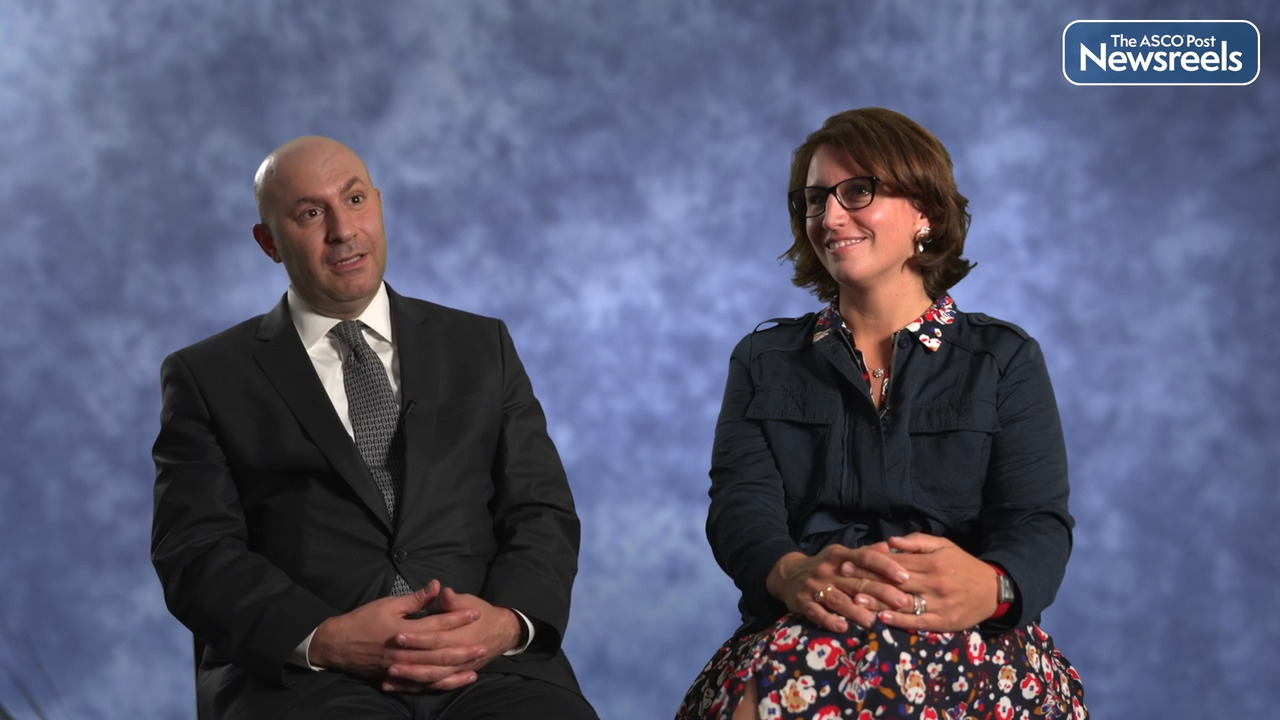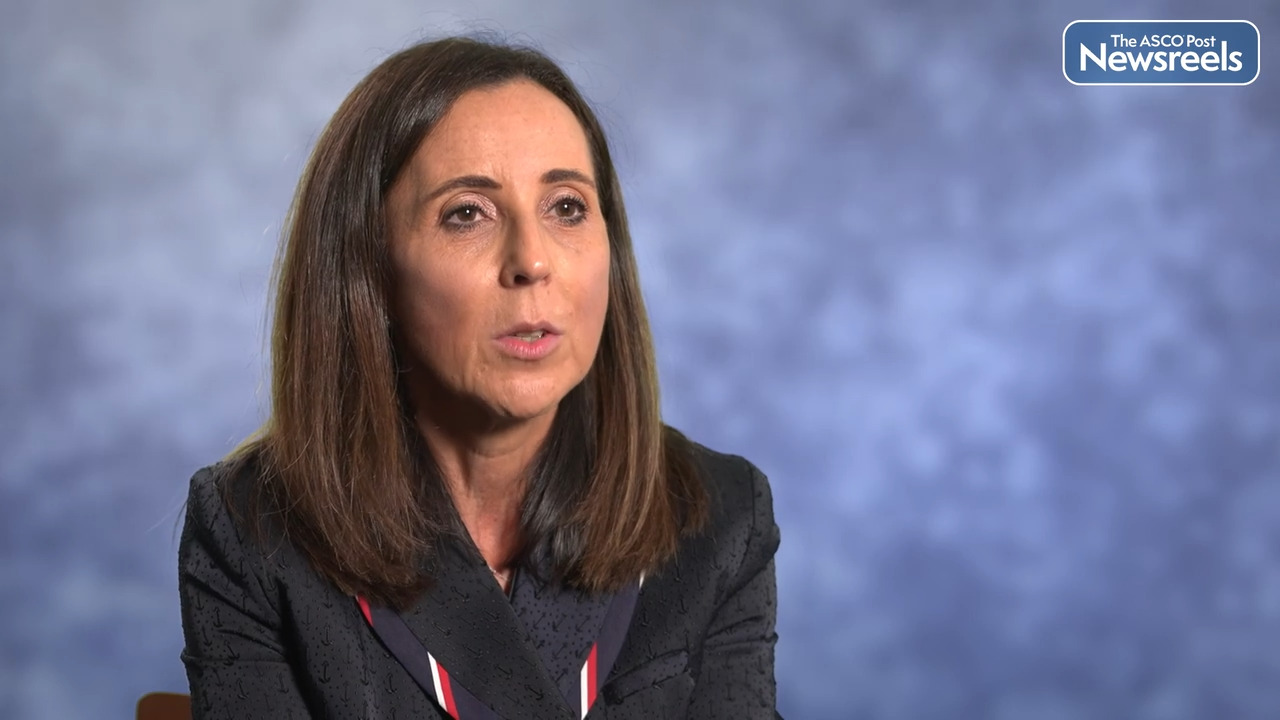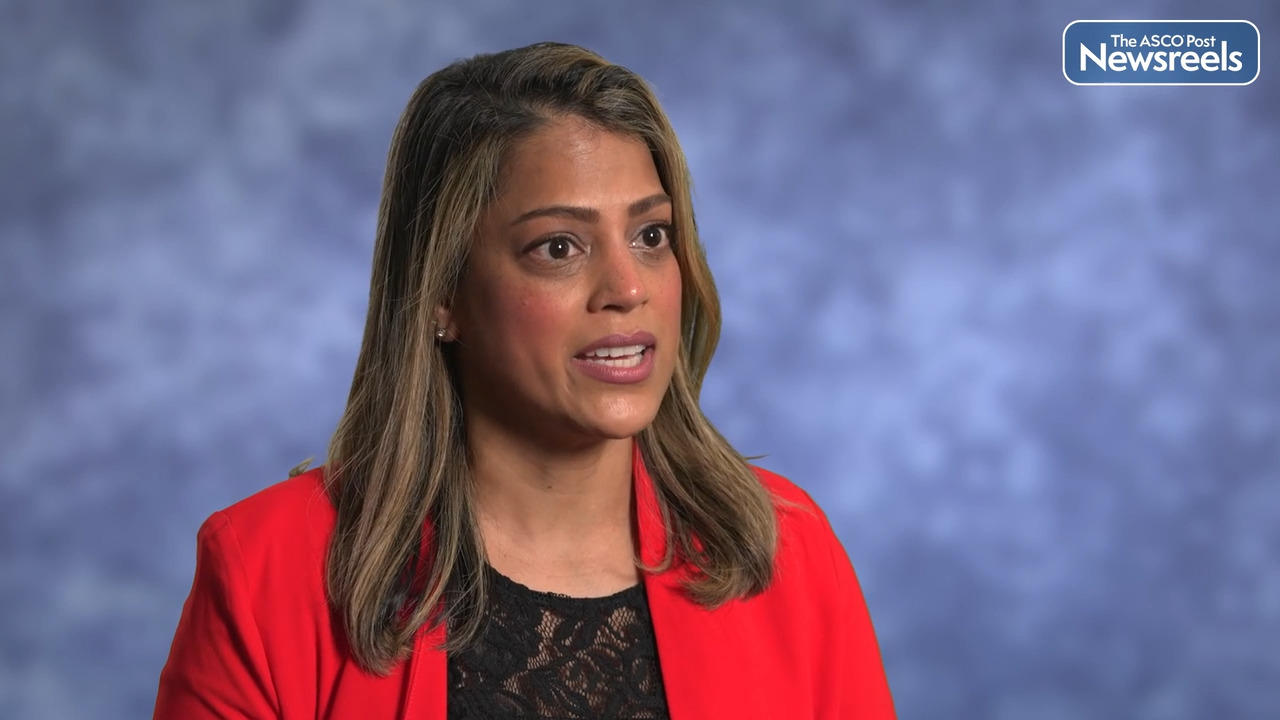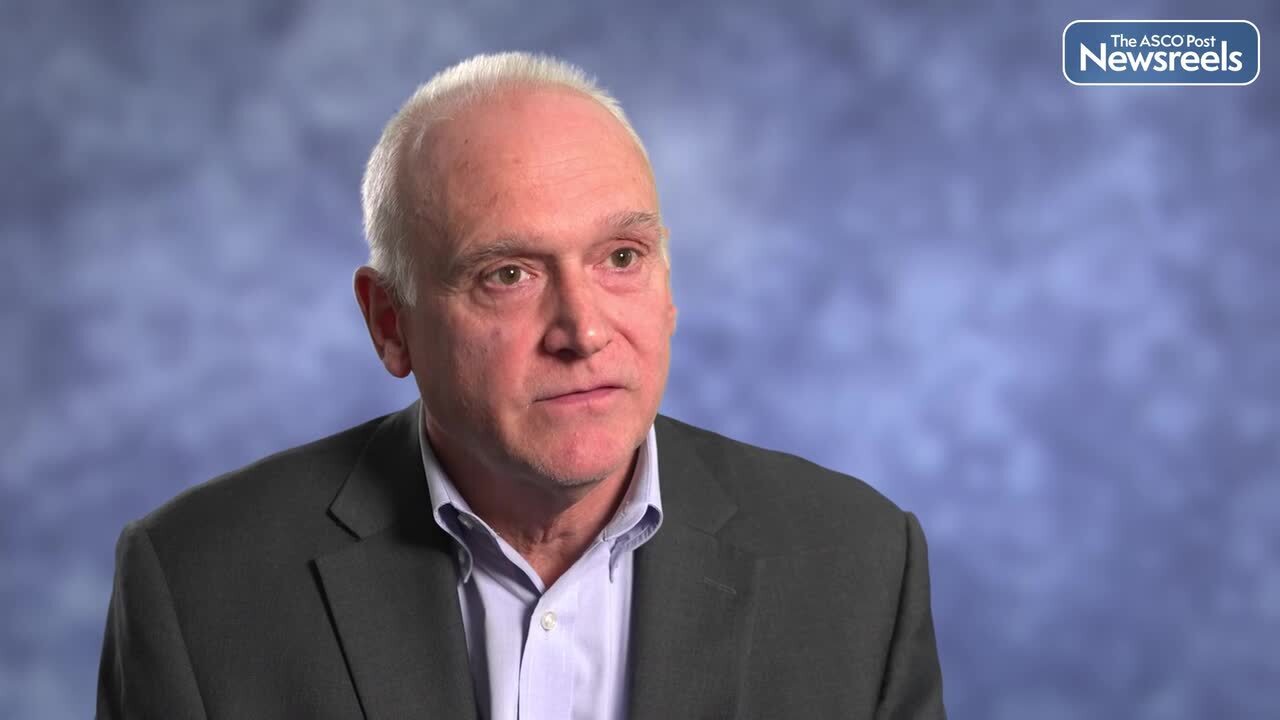Ana Oaknin, MD, PhD, on Cervical Cancer: Safety and Efficacy Results With Nivolumab and Ipilimumab
ESMO Congress 2022
Ana Oaknin, MD, PhD, of Barcelona’s Vall d’Hebron University Hospital, discusses findings from the CheckMate 358 trial, which showed that chemotherapy-free immunotherapy with nivolumab alone or in combination with ipilimumab may provide durable tumor regression with manageable toxicity in patients with recurrent or metastatic cervical cancer, regardless of tumor PD-L1 expression (Abstract 520MO).
Transcript
Disclaimer: This video transcript has not been proofread or edited and may contain errors.
CheckMate 358 is an ongoing Phase I/II study analyzing the role of nivolumab and nivolumab/ipilimumab combination in virus-associated cancer, including cervical cancer, regardless of PDL1 status. In the cervical cancer cohort, recovering metastatic cervical cancer patients were randomized into two arms, nivolumab plus ipilimumab in two different regimens: NIVO 1 IPI 3, or NIVI 3 IPI 1. These combinations were analyzed in the first-line setting and the second-line. The primary objective of the study was overall response rate and secondary objective progression-free survival, overall survival, and duration of response. The two-treatment combination show promising overall response rate, and remarkably, we observe greater responses when the patient received this combination of first-line therapy. Interestingly, the combination show responses regardless of PDL1 status. And when we saw the response rate in this combination were greater that we saw with nivolumab monotherapy.
In addition, PFS and overall survival were really, really promising. When we look at the median overall survival for those patients treated with NIVO 1 IPI 3, was around 20 months and interestingly 48% of the patients were alive up to NGS. However, this data should be interpreted with caution because the trial is not fully randomized and the population was a mixed population. The safety profile of the combination in this study was aligned with the previous reported data. We need to say that some adverse events, such as hepatitis and colitis seem to be higher for those patients treated with nivolumab 1 ipilimumab 3. But in conclusion, I can say that outcome from the NIVO 3 combination show very, very promising outcome, and it may be considered as a kind of chemotherapy free regimen for our patient with metastatic recurrent cervical cancer.
The ASCO Post Staff
Toni K. Choueiri, MD, of the Dana-Farber Cancer Institute, and Laurence Albiges, MD, PhD, of France’s Gustave Roussy Cancer Centre, discuss phase III findings showing that cabozantinib in combination with nivolumab and ipilimumab reduced the risk of disease progression or death compared with the combination of nivolumab plus ipilimumab in patients with previously untreated advanced renal cell carcinoma of IMDC (the International Metastatic RCC Database Consortium) intermediate or poor risk. However, the combination of cabozantinib, nivolumab, and ipilimumab vs nivolumab plus ipilimumab did not demonstrate an overall survival benefit to patients (Abstract LBA8).
The ASCO Post Staff
Ana Oaknin, MD, PhD, of Barcelona’s Vall d’Hebron University Hospital, discusses an analysis of long-term survival from the EMPOWER-Cervical 1/GOG-3016/ENGOT-cx9 trial. Cemiplimab-rwlc is the first immunotherapy to demonstrate an overall survival benefit as a second-line monotherapy for patients with recurrent or metastatic cervical cancer previously treated with platinum-based chemotherapy but not immunotherapy. The benefit was sustained in this population (Abstract 519MO).
The ASCO Post Staff
Julien Taïeb, MD, PhD, of Paris Descartes University, discusses phase II results from the SAMCO-PRODIGE 54 trial, which shows the efficacy and safety of avelumab in the second-line treatment of patients with deficient DNA mismatch–repair microsatellite-instability metastatic colorectal cancer. According to Dr. Taïeb, the study indirectly suggests this population should be treated as soon as possible with an immune checkpoint inhibitor (Abstract LBA23).
The ASCO Post Staff
Sapna P. Patel, MD, of The University of Texas MD Anderson Cancer Center, discusses the latest findings from the SWOG S1801 trial, which showed that using single-agent pembrolizumab as neoadjuvant therapy improved event-free survival compared to adjuvant therapy in high-risk resectable stage III–IV melanoma (Abstract LBA6).
The ASCO Post Staff
Paul A. DiSilvestro, MD, of Women & Infants Hospital and the Warren Alpert Medical School of Brown University, discusses overall survival results after a 7-year follow-up of the SOLO1/GOG-3004 trial for patients with newly diagnosed advanced ovarian cancer and a BRCA mutation who received maintenance olaparib. Dr. DiSilvestro details the increasing role of such PARP inhibitors in ovarian cancer treatment and their benefit to patients (Abstract 517O).





